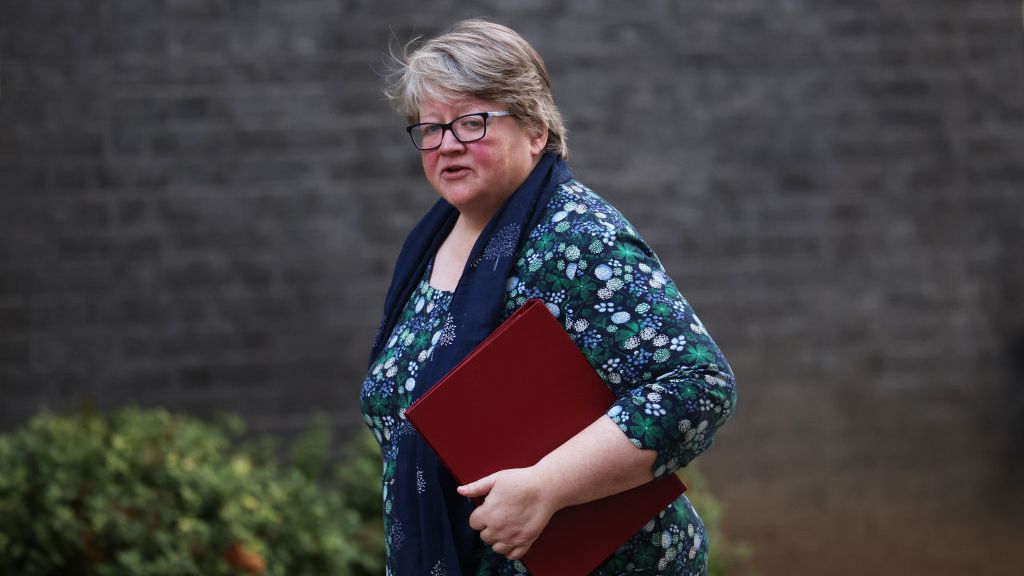Google fears government internet snooping
Google fears that the Digital Economy Bill could give the government the right to spy on UK internet users.

Sign up today and you will receive a free copy of our Future Focus 2025 report - the leading guidance on AI, cybersecurity and other IT challenges as per 700+ senior executives
You are now subscribed
Your newsletter sign-up was successful
Google has voiced its fears over the Digital Economy Bill, claiming that Clause 17 could lead to an increase in government scrutiny into the internet habits of users.
Clause 17 allows the government to change its laws on copyright in the future through statutory instrument, rather than a full legislative procedure.
In a blog post Sarah Hunter, Google's UK policy manager, said it feared Clause 17 could require the government to start gathering more information about users internet habits, even when nothing illegal had taken place.
"The first step required of any government using these new powers would be to carry out some sort of assessment of whether significant copyright infringements are taking place," she said.
"The assessment would have to be based on independent facts and what facts' other than through user data? Crucially, such an assessment would require examining the behaviour of all UK internet users. This is wrong."
Hunter said that Google "fiercely" protected the privacy of its users around the world, and did not believe that the fear of illegal activity justified intrusion everywhere on the internet.
Google understands why the government would try to make laws "future proof" to cope with technical change, according to Hunter, but she added: "...as we have said many times in the past, legislation is often like a slow moving tank in the internet world. Innovations happen faster than most politicians can even imagine, and to try and future proof laws requires laws so big and powerful that the risks of misuse far outweigh the benefits."
Sign up today and you will receive a free copy of our Future Focus 2025 report - the leading guidance on AI, cybersecurity and other IT challenges as per 700+ senior executives
Google, eBay, Facebook and Yahoo have already written a letter to Business Secretary Lord Mandelson, warning that the clause risked "stifling innovation and damaging the government's vision for Digital Britain."
-
 Scalper bots are running riot as memory shortages continue
Scalper bots are running riot as memory shortages continueNews DataDome says bots are driving up the price of DRAM even further thanks to AI demand
-
 Xiaomi Pad 8 Pro review
Xiaomi Pad 8 Pro reviewReviews Xiaomi's newest entry offers strong performance, a vibrant 11-inch screen and a blockbuster battery life to maximize productivity
-
 ‘Hugely significant’: Experts welcome UK government plans to back down in Apple encryption battle – but it’s not quite over yet
‘Hugely significant’: Experts welcome UK government plans to back down in Apple encryption battle – but it’s not quite over yetNews Tulsi Gabbard, US director of national intelligence, has confirmed the UK plans to back down on plans that would see Apple forced to create a "back door" for authorities.
-
 ‘A huge national security risk’: Thousands of government laptops, tablets, and phones are missing and nowhere to be found
‘A huge national security risk’: Thousands of government laptops, tablets, and phones are missing and nowhere to be foundNews A freedom of information disclosure shows more than 2,000 government-issued phones, tablets, and laptops have been lost or stolen, prompting huge cybersecurity concerns.
-
 The UK cybersecurity sector is worth over £13 billion, but experts say there’s huge untapped potential if it can overcome these hurdles
The UK cybersecurity sector is worth over £13 billion, but experts say there’s huge untapped potential if it can overcome these hurdlesAnalysis A new report released by the DSIT revealed the UK’s cybersecurity sector generated £13.2 billion over the last year
-
 "Thinly spread": Questions raised over UK government’s latest cyber funding scheme
"Thinly spread": Questions raised over UK government’s latest cyber funding schemeThe funding will go towards bolstering cyber skills, though some industry experts have questioned the size of the price tag
-
 Threat of cyber attacks to national security compared to that of chemical weapons
Threat of cyber attacks to national security compared to that of chemical weaponsNews The UK government has raised the threat level posed by cyber attacks, deeming it greater on average than an event such as the Salisbury poisoning
-
 2022 Public Sector Identity Index Report
2022 Public Sector Identity Index ReportWhitepaper UK Report
-
 UK and Japan strike digital partnership to collaborate on IoT security, semiconductors
UK and Japan strike digital partnership to collaborate on IoT security, semiconductorsNews The two countries are also set to align their approaches to digital regulation to make it easier for companies to operate in each nation
-
 Defra's legacy software problem 'threatens' UK gov cyber security until 2030
Defra's legacy software problem 'threatens' UK gov cyber security until 2030News The department spends over two-thirds of its digital budget on maintaining the risky applications, with no plan in place for a fix within the decade